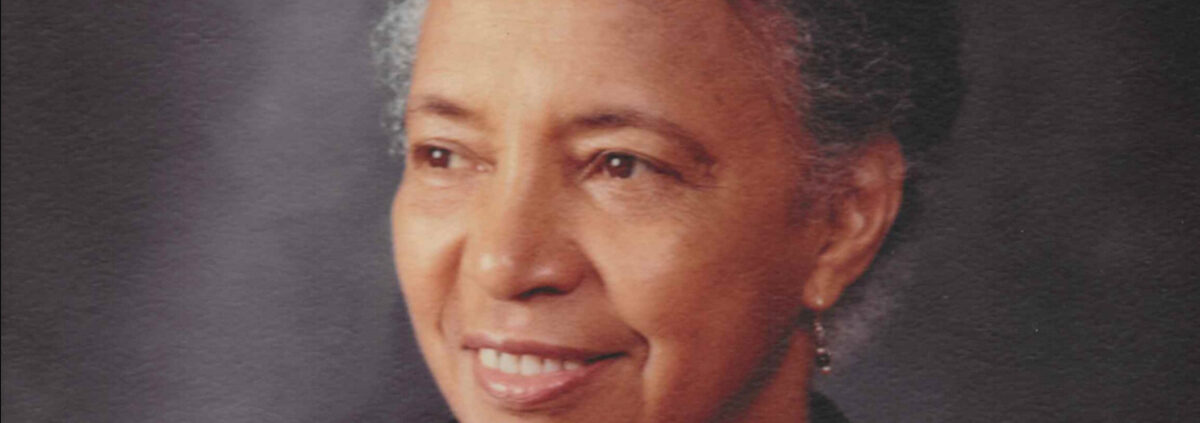The Imperative of Racial Trauma: Truth and Reconciliation in America
Tuesday, March 1, 2022 at 8 PM
The Imperative of Racial Trauma: Truth and Reconciliation in America: Continuing the Work of Margaret Morgan Lawrence, M.D.
Presenter: Dionne Powell, M.D.
Discussant: Susan Coates, Ph.D.
Location: Register via the button below to receive the Zoom link
Special Event: The APM presents the inaugural Margaret Morgan Lawrence Lecture featuring our esteemed colleague, Dr. Dionne Powell. This biennial lecture brings to the Columbia community speakers who apply psychoanalytic theory or practice to racially and culturally diverse community contexts and honors the life and work of Dr. Margaret Morgan Lawrence.
There are numerous psychic impingements on a global and national level that can no longer defensively be ignored: the consequences of global warming; a pandemic with new variants on the horizon; democracies in crisis, with people increasingly living in fear and peril. In America, these fears have accelerated our political divide. I propose that at its root our long standing stalemate in reconciling democracy with slavery, freedom with human bondage and ownership, and therefore race, has reached an inflection point that heightens fear and threatens our republic. We are a society that is unconsciously in bondage from the cumulative transgenerational traumas of unacknowledged, un-metabolized racial tensions and hostilities.
Where and how do psychoanalytic ideas and thinking provide a framework to understand these entrenched phenomena and how can we be of some benefit in these challenging times? This lecture attempts to bring our psychoanalytic thinking closer to the psychic and societal vulnerabilities housed in mind that is modern society. This requires first acknowledgment of our fears and traumas as clinicians that paralyze our functioning, with attempts at moving beyond our silence; and using our voices and our writing to convey the power of unconscious influences that shape our behaviors and reactions. By engaging in this type of work we can move away from the powerful influence of familial unconscious generational trauma that transforms ghosts and traumas into ancestors and psychic freedom.
While many have spoken to these challenges, Margaret Morgan Lawrence in her life and work embodied these efforts and was prescient in bringing an integrating, resilient approach providing a guide to what I am speaking of in terms of the adversities, traumas and obstacles that Lawrence tackled head on finding an inner steadfast vitality, resilience and humanity that she shared with her patients, community and colleagues as a pediatrician and psychoanalyst. As a profession we have within us a similar healing force that has never been more needed than today.
Dionne Powell, M.D.
Psychiatrist and psychoanalyst Dionne Powell is the author of From the Sunken Place to the Shitty Place: The Film Get Out, Psychic Emancipation and Modern Race Relations from a Psychodynamic Clinical Perspective (The Psychoanalytic Quarterly 2020), and Race, African Americans, and Psychoanalysis: Collective Silence in the Therapeutic Situation (Journal of the American Psychoanalytic Association, 2018, JAPA prize recipient). She is the section editor on racial and ethnic diversities for the 2nd edition of Glen Gabbard’s Textbook of Psychotherapeutic Treatments (2022). Dr. Powell has received numerous awards including the Association for Psychoanalytic Medicine’s 2018 George Daniels Award, the American Psychoanalytic Association Candidate’s Council 2020-2021 Master Teacher Award, and in May 2022 she will be awarded the Solomon Carter Fuller Award by the American Psychiatric Association. Dr. Powell is a training and supervising psychoanalyst at Columbia Psychoanalytic, and the Psychoanalytic Association of New York (PANY), Clinical Assistant Professor of Psychiatry at Weill Cornell Medical College, founding member of Black Psychoanalysts Speak (next BPS Virtual Conference May 14-15, 2022) and is co-chair of the Holmes Commission for Racial Equity in Psychoanalysis (APsaA sponsored). Dr. Powell is in full time private practice.
Discussant
Dr. Susan Coates is a psychoanalyst and Clinical Professor of Medical Psychology in Psychiatry and an author of numerous articles in her special areas of interest in child trauma, attachment, and gender. Dr. Coates is an editor with Dan Schechter and Jane Rosenthal, of the book September 11: Trauma and Human Bonds. She is a co-founding Director with Karen Gilmore of the Parent- Infant Psychotherapy Training Program at Columbia Psychoanalytic and is on the Board of Directors of the Margaret Mahler Foundation. She teaches a course on Intergenerational Transfer of Trauma and Resilience. Her Expert Interview on Trauma in Children: Considerations for Care after Hurricane Katrina is available at Medscape Psychiatry.
Dr. Margaret Morgan Lawrence was born in Harlem in 1914 and grew up in Virginia and in Vicksburg, Mississippi. She cited her older brother’s death in infancy as one of the main reasons she sought to pursue a career in medicine. Despite facing the obstacles of repeated systemic discrimination and oppression throughout her education and training, Dr. Lawrence ultimately graduated from the Columbia University College of Physicians and Surgeons in 1940 as the only Black student in her class. She was the first Black psychoanalytic candidate at the Columbia Center for Psychoanalytic Training and Research and then became the first Black woman to become a psychoanalyst in the United States in 1948.
A pathbreaking child psychiatrist and psychoanalyst, Dr. Lawrence served as chief of developmental psychiatry services at Harlem Hospital for 20 years. Among her many accomplishments, she established a racially integrated co-op community, was a founding trustee of the Harlem Family Institute (a multicultural psychoanalytic institute), treated families in Harlem and Rockland County, and established a mental health service in the local Rockland County school system.
Her daughter, Professor Sarah Lawrence Lightfoot, describes Dr. Lawrence’s revolutionary approach to the psyche in her biography of her mother: “She understood that not just the interior life of a person but their context in the life of the family as well as forces in the community — particularly forces that are discriminatory — can leave people oppressed and marginalized.”



